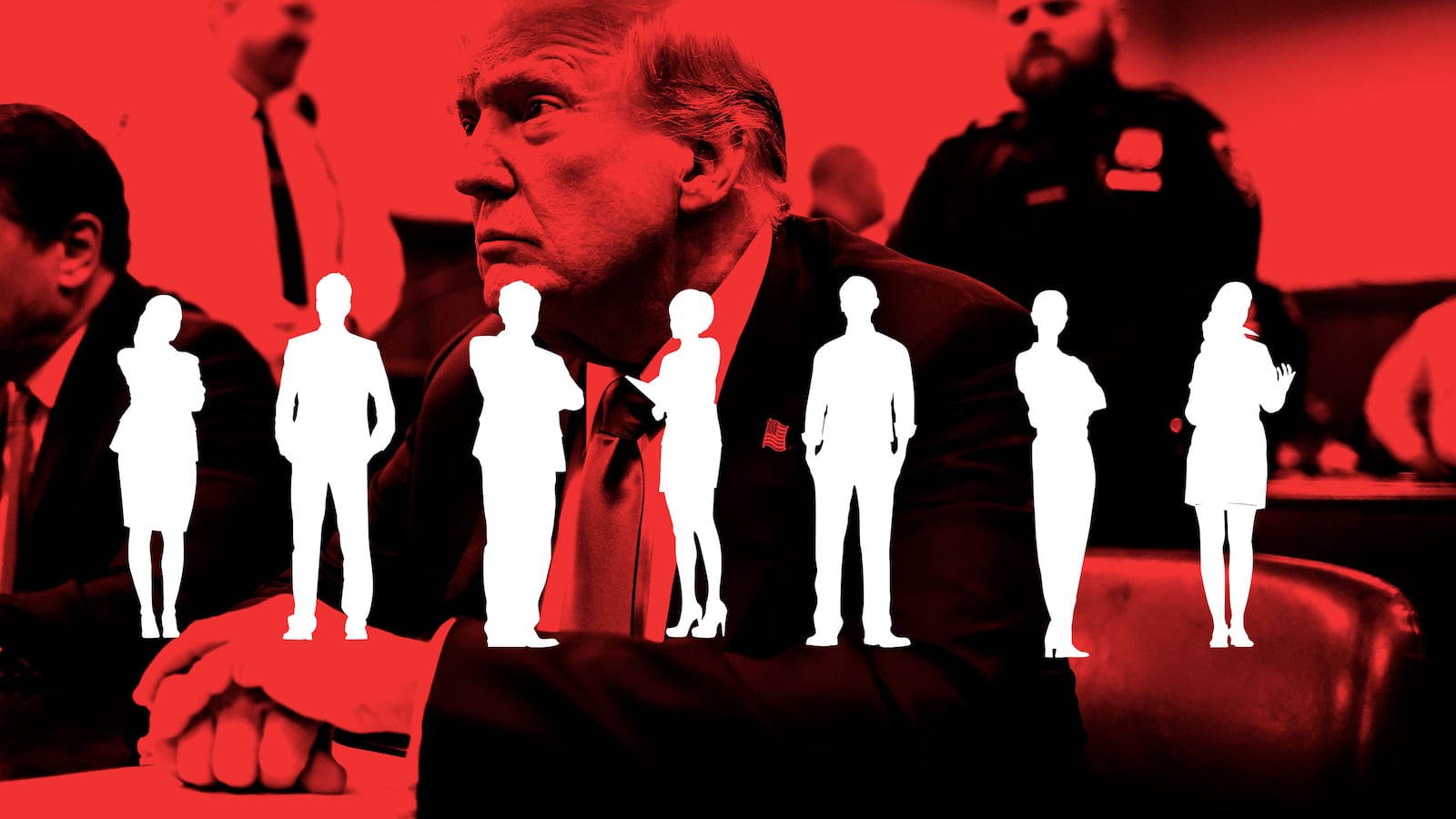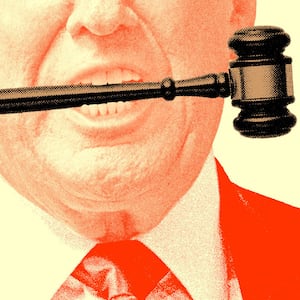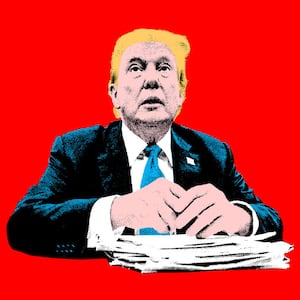Yolanda Crawford was just 25 when she and her fellow jurors acquitted O.J. Simpson over the killings of the ex-football star’s wife, Nicole Brown Simpson, and her friend, waiter Ron Goldman.
Today, she is 54.
But, as Crawford said on Thursday, “I’ve never really broken free from it.”
“You’re always being judged by someone,” she told The Daily Beast from her home in Southern California. “If someone found out that I was on that case, I had to hear about it and get their opinion. Not that it was warranted, or that I wanted it, but everyone had an opinion on the case, whether it was the same as mine or different from mine. I always felt judged by it.”
The American public, according to Crawford—a former civilian employee for the Los Angeles County Sheriff’s Department—was “horrific” to her in the aftermath of the shock not guilty verdict she and her fellow jurors delivered on Oct. 3, 1995. And now, with the advent of the internet, Crawford said she regularly receives “nameless, faceless, very derogatory messages” online, and still gets angry letters in the mail from people who insist she and the others got it wrong.
“I could say that I’m hated by many,” Crawford, the youngest person on the jury, added.
Now, the seven men and five women who on Thursday found former President Donald Trump guilty of falsifying business records after conspiring to pay porn star Stormy Daniels $130,000 in hush money may look forward to a similar fate.
Jurors from several past high-profile cases told The Daily Beast that the aftermath of their verdicts was, in large part, just as intense as the cases themselves. They described being bombarded by the press, navigating book deals, facing haters, and the psychological toll of knowing their decision would inevitably generate massive backlash—no matter which way it goes.
Jill Huntley Taylor, a professional trial consultant who is not connected to the Trump case, said being a juror in any case is “hard work” and “stressful,” a feeling that only becomes amplified when the rest of the world is watching.
“These jurors all accepted this task, knowing who was on trial and not taking the opportunity to say, ‘No, I can’t do this,’ as so many of their fellow New Yorkers did,” Taylor said of the Trump jurors. “So this is a unique subset of people who agreed to serve as a juror on this case.”
After this trial, she said she anticipates some Trump jurors will choose to speak out publicly because of the “interest in hearing from them, be it an interview, or even a book deal.”
“Others, and perhaps most, will want to move on and try putting this experience behind them,” Taylor added. “Some may be fearful of reaction to the verdict and others will just want to remain private.”
And if they choose to speak out, many might endure fierce blowback.
“There will be scrutiny no matter what the verdict is, but a guilty verdict would put jurors at greater risk of scrutiny as the former president is already challenging the fairness of the system and the jurors,” Taylor said, speaking before Thursday’s verdict. “Jurors may be less likely to come forward publicly if they find Trump guilty.”
Among the jurors who had difficulty returning to life as normal was Richelle Nice, who delivered a verdict in Scott Peterson’s 2005 trial. Rich, who was known as “Strawberry Shortcake” for her bright red hair, said it was “chaos” after Peterson was convicted of the 2002 murder of his wife, Laci, and their unborn child.
“I guess for me it was a little bit of a different experience because, for whatever reason, I was one of the popular jurors,” she said. “I was a bit mouthy. But then, obviously, I am now the most unpopular juror, so the media will switch.”
In their bid to overturn Peterson’s conviction, his attorneys accused Nice of lying during jury selection to get picked so she could profit from the case. They say that after the verdict, Nice wrote 17 letters to Peterson in jail, co-authored a book with her other jurors, and even appeared on the Dr. Oz show.
However, Nice said she only wrote to Peterson at the direction of her therapist. As for any alleged profits, she said juror life isn’t as lucrative as some may claim.
“Maybe $2,000. I honestly don’t remember, but it was very little,” she said about her earnings from the 2007 book she wrote with seven fellow Peterson jurors.
Ray Hultman, who was Juror No. 1 in Michael Jackson’s 2005 sexual abuse trial, also wrote a book about acquitting the so-called “King of Pop” of accusations he molested a 13-year-old boy. He said writing the book 16 years after the trial ended was catharsis, of a sort.
“By writing the book, I was able to get all of this information that I had into the public domain, and then after doing all that I could kind of forget about it—I’ve done it, I’ve said everything I needed to say, and then I’m done with it,” Hultman said.
Hultman said that while he dictated his personal thoughts at home nightly throughout Jackson’s trial—amassing more than 25 hours of material—he didn’t turn it into a book until the pandemic. The retired engineer said he didn’t think a traditional publisher would bite, given so much time had passed, so he self-financed the project.
“It’s not a money-making proposition at all,” Hultman said, noting he makes about $2.50 on each Kindle version sold and between $4 and $5 on a physical copy. He estimates he has sold fewer than 100 books since he released Diary of Juror No. 1 in May 2021. (The photographs in the e-book are all in color, but the ones in the hard copy are black-and-white “because it was cheaper to publish in black-and-white,” Hultman said.)
For Bernard Cody, the honor of being the foreperson in Harvey Weinstein’s New York rape trial was a job he took very seriously—especially since he was expecting a big reaction after a verdict.
He said his main paydays came from two TV interviews he gave after the guilty verdict. But unlike other jurors, Cody’s brush with fame was quickly shadowed by a bigger news story: the global pandemic that shuttered New York after Weinstein’s sentencing.
“The day the city shut down I was supposed to have an interview with Oprah Winfrey. Obviously that did not happen,” he said. “Now, I only really get contacted by the press when there is another big high-profile case they want my comment on. I returned to my life pretty easily.”
And although he has also settled into a comfortable retirement, Hultman still thinks about the Michael Jackson case regularly.
“It had a big impact on me, personally,” he said. “It wasn’t one of those ethereal things that’s here today, gone tomorrow. It’s like OK, it happened. And I won’t forget that it happened. At all.”
For Crawford, the so-called “Trial of the Century” continues to play a central role in her life all these years later.
“It was overwhelming, you couldn’t get away from it,” Crawford explained. “It’s like you’re searching for peace and you couldn’t find peace. But it eventually died down and I was able to go on with my life and didn’t have to focus on it every day. When you have a story that’s in the news, on TV, at the newsstands, you’re just hoping for a day when you didn’t have to see it.”
Still, Crawford said, “It never went away.”
After Simpson’s acquittal, he was sued civilly, arrested for robbery, incarcerated for 10 years, and then released—all of which brought on nonstop news coverage. Simpson died from cancer at the age of 76 in April, spurring a fresh round of coverage. The 30th anniversary of Brown Simpson and Goldman’s killings also looms.
“I thought that now that he’s gone, I would’ve thought that it would be over,” she said. “But now we have Trump, and you’re definitely not the first person to want me to talk about that.”








